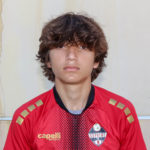SoccerWire.com Q&A (Part 2): Croatia technical director Romeo Jozak on American development
PHILADELPHIA — In Part 1 of our Q&A with Croatia technical director and former Dinamo Zagreb academy director Romeo Jozak, we discussed coaching education and personalities of prominent managers around the world. In Part 2, we turn our attention to issues surrounding the development of American soccer.
Jozak spoke candidly about many aspects that hold the United States back in their development as a soccer country, including the economics of the American pay-to-play system. Here is Part 2 of our Q&A:
Soccerwire.com: A few years ago, U.S. Soccer finally published a curriculum for its coaches, trying to implement a similar style of play all the way down the national team chain. In Croatia, do you have a curriculum? Is that important to a country playing well?
Romeo Jozak: “Yes, I think it is. I think it’s way easier for us in Croatia, having the population of 4.5 million people in such a small territory, to follow the unified vision. Yes, we do have a curriculum. Myself and people around me put it together two or three years ago, and we do follow it in all the national teams. It will take time to take effect in the future, but yes, I think it’s important to not necessarily play the same system — 4-3-1-2 or whatever — [but have] the same philosophy in movements, in passing, in opening.
“This is what makes it interesting: let’s say technique. They asked me [at the convention] how important technique is. Technique is important, but the application of technique to be functional is something else. OK, this guy is a talented guy. He can juggle the ball, can do miracles, is a clown — but he can’t apply that technique to solve problems in the game. Having the opposing team play active defense or passive defense, you’ve got to have the functional technique — not only aesthetic technique.
“That’s another thing: when you have functional technique, this technique should solve problems on the individual tactical level — if I open [my body] this way, I open that way, my angle of vision is going to be this much bigger. Functional technique is going to help you adjust those things by actually being that applicable in that way. … We’ve got to educate the kids in the same or similar way.”
OK, this guy is a talented guy. He can juggle the ball, can do miracles, is a clown — but he can’t apply that technique to solve problems in the game. … You’ve got to have the functional technique — not only aesthetic technique.
SW: That influences how you also educate the coaches, then, because if you’re looking at a similar style of play, you have certain tactical applications that are important for all coaches in the system to implement.
RJ: “Exactly. This is why I said selection of coaches is just as important — even more important — than selection of players. Good coaches can always select good players that are around.”
SW: The U.S. is a huge country with a vast population. From what you know of the American game at the youth and professional levels, what’s holding the U.S. back? Everybody wants to know right now, why isn’t the U.S. challenging for a World Cup? We’re “world champions” in baseball and football. It’s a big question, I know, but why haven’t we won a World Cup?
RJ: “I would actually answer quite openly that question, but again, I know how it is when they quote you on a website. I want to make friends, especially knowing a lot of people here in the States.
“First of all, here in the States, kids generally have a good life economically. There’s not a big hunger for success. If they succeed, it’s good. If they don’t, I’m still going to have something to [fall back on], as opposed to some other countries that don’t have such comfort in their lives, especially in Africa or Brazil. This is the only way to actually make things work. So the hunger, the passion for the game — you can have talent, but if you don’t have hunger, literally, and passion to make it, nothing’s going to come out of it. All the good players in the world are fanatics. They’re good players, but they’re fanatics of work [and] of their talent, as well.
“In the States, having the better economy as the days go, compared to the rest of the world, makes it hard for you to find those guys who, we like to say, are going to throw themselves headfirst for every single ball. You’re a talented guy, but what’s talent? Talent is technical. How about his personality? Is he going to give everything he’s got in his life to make it happen? Imagine at the same time, there are other kids in the rest of the planet doing the same exact thing in some countries. If you don’t have that as much, if you can’t keep up with that as much — not only being technically able to do that — you’re not going to proceed. It’s a fight. It’s a war, literally, those big-time games. One thing is playing a soccer game — a completely different thing is playing a soccer game for points because you’ve got to win. … So that’s thing No. 1.
At the age of 14, if your primary reason, your primary goal, is to produce a result, I’m going to find biologically advanced kids who are going to compete more because they’re stronger, as opposed to those kids … that in the long run might actually do something better.
“Thing No. 2 is … every coach is under pressure to produce results. Every coach. That’s logical, right? At the age of 14, if your primary reason, your primary goal, is to produce a result, I’m going to find biologically advanced kids who are going to compete more because they’re stronger, as opposed to those kids who are maybe not as strong. Chronological age doesn’t always follow biological age. Some kids at the age of 14 are already adults, while some kids at 18 are not even 15-year-old ones biologically. So a coach, if he’s under pressure, if he’s got to produce, the goal is to primarily win something, I’m going to pick this guy over you because he’s stronger. Yes, OK, I care about you, but you know what? Until you’re going to grow up, I’m going to be dead because I didn’t produce.
“Unless there’s guidance — unified, strong guidance from above — saying we need results, but above all, we need to look after this [skillful] guy, don’t get rid of him, don’t forget about him … they’re going to pick those strong guys that are going to play good soccer, as opposed to those young kids that in the long run might actually do something better. …
“Having those two things that are problems, this is something that prevents you from not being able to win a World Cup.”
SW: Especially in the younger age groups and in the premier clubs, it’s very expensive to play soccer here. Like you say, the kids that they get end up being from more privileged economic backgrounds because they’re the only ones who can play. How do the academies and youth systems work in Croatia? Kids don’t have to pay to play, right?
RJ: “First of all, you have no limits. You don’t filter the guys by their budget. Everyone can play. We do have a bit of another competitive sport in handball — we’re Olympic champions [in 2004] — but not even close to soccer. Soccer is like a religion in Croatia.
“If it’s free, if there’s no yearly membership or anything, anyone is welcome to come, and the selection criteria is the quality rather than a financial budget ahead of time. I come to the States quite often, so I’m quite familiar with the system here, and I know what you’re talking about. People back home are not, so if you ask them the question, they would say, ‘What do you mean this guy cannot be seen or cannot train if he doesn’t have money to actually pay something?’ Back home, everyone does have a chance to be seen and to train if they’re good.
“This is just, I would say, two different worlds, two different philosophies, and this is also one of the problems that might actually get you to have a handbrake on long-term development.”












